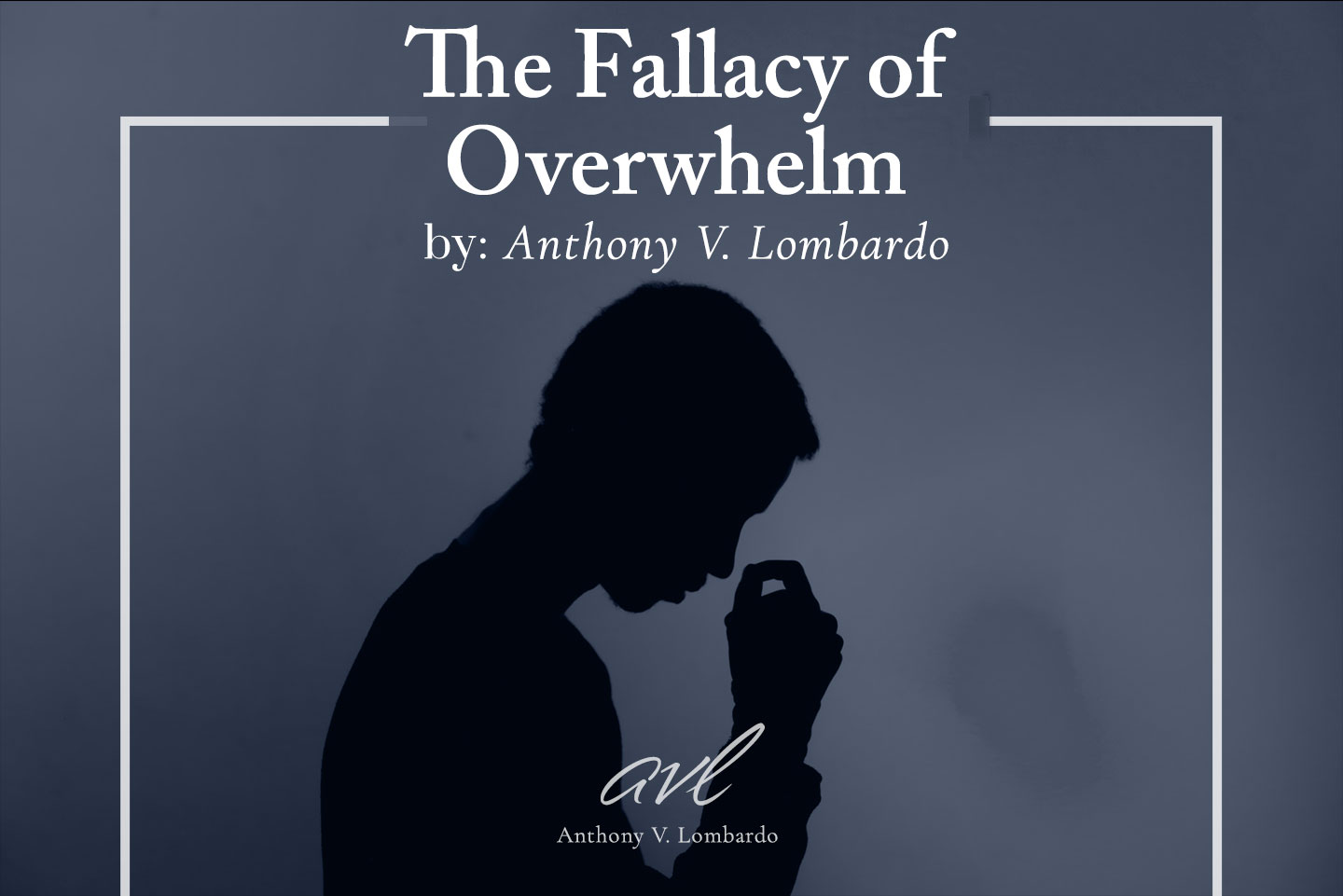
New Audio Experience: Awaken Your Soul and Remember Who You Are
What is Overwhelm?
You might have heard this famous piece of wisdom (most commonly attributed to Bill Gates)
“Most people overestimate what they can get done in a year and underestimate what they can do in a decade.”
This holds true over shorter timeframes too. We tend to overestimate what we can get done in a day, but underestimate what we can accomplish in a year.
I know for me the biggest hurdle throughout the day sometimes is trying to work on too many projects and attend to too many things.
You might be familiar with the scene…
You’ve taken too much on, your focus is scattered, the phones buzzing, email is chirping, someone or something is “on fire” and urgently needs your attention to put it out. 🔥
You’re dishing up too many plates and juggling too many balls in the air. 🤹🏼
And they’re all about to come crashing down on you.
Combine that with just being a human living in the 21st century who has a career, a family to care for, a household to manage, bills to pay, goals to chase, and a burning desire to get ahead and improve every area of your life.
Sometimes we have so much going on and vying for our attention, it can feel like our heads might explode. 🤯
Enter the state of overwhelm — that paralyzing cocktail of stress, worry, helplessness, and disempowerment.
Overwhelm hijacks our consciousness and pushes us out of presence, leaving us unable to see things clearly.
Then right on cue enters our mental chatter making our problems appear bigger and more urgent than they actually are. 😱
Enter the illusion…
The Fallacy of Overwhelm
A more fitting definition of overwhelm is an illusion created by our minds in which everything feels insanely urgent.
If we don’t get everything done right here, right now, we’re dead in the water. We will fail, be shamed into oblivion, and the world will melt!
But this is merely a cognitive distortion and what they call “catastrophizing” in the cognitive-behavioral world.
It’s an irrational thought pattern perpetuated from our own mental chatter, driven by this extreme sense of urgency.
Being overwhelmed is less about what’s going on outside of you and all the things you have to do and more about what’s going on inside of you.
Sure, what you are feeling is real — but that’s only because inner chaos actually creates outer chaos.
When we have a zillion things flooding our minds, along with a whole range of emotions weighing us down, it’s impossible to hold onto our greatest power which is consciousness and presence.
And without those “big two”, we can’t slow down, prioritize, and be productive.
9 Ways To Stop Feeling Overwhelmed
Here are some quick tips I compiled that can help lead you out of overwhelm and back into consciousness and presence.
1. Dump Your Brain.
When you are experiencing a bout of overwhelm, ’empty your brain’ by taking everything rattling around in your head and get it onto paper.
This includes everything from the obvious deadlines and pressing demands of daily life to those nagging little reminders your phone keeps pinging you about.
Every item, task, or project no matter how big or small — if it’s taking up space in your mind get it down on paper!
The act alone of writing everything down will help lessen the feelings of overwhelm and stress by distracting your mind and giving it something else to focus on.
2. Create a Weekly Planning Ritual.
If you are not already planning your week, each week before it begins, immediately start doing this now.
This is one of the most important and powerful habits you can have that will set you up to be more productive and motivated and less likely in the trenches of overwhelm and stress.
As Stephen Covey discusses in his famed best-seller “7 Habits of Highly Effective People”, weekly planning allows you to put first things first and to ensure you are organizing and executing around your most important priorities.
This weekly ritual should be a means for you to create a time and space to determine the most important and meaningful tasks in your life right now.
You want to avoid at all costs going into your week (especially a busy one) without being armed with a plan.
As Zig Zigler once said, “You cannot make it as a wandering generality. You must become a meaningful specific.”
So make weekly planning non-negotiable.
3. Be Wary of Half-Hearted Commitments.
When planning your week, challenge your assumptions about what actually is a priority.
We all have those items that stay on our to-do lists for weeks on end that never actually see the light of day.
These are usually things that we are not passionate about and feel obligated to do. The so-called “necessary evils” like getting our taxes filed or fixing that pesky leak in the bathroom sink.
Half-hearted commitments like these that stay on our to-do list but never get done can make us feel constantly frustrated and like we are failing on a subconscious level.
Either bite the bullet and commit to getting it done once and for all…or once again get rid of it from your list.
Either way, free yourself from the mental strain.
4. Eliminate All Non-Essentials.
Become ruthless when planning your week and setting your day’s priorities.
To reference Stephen Covey again, plan and schedule your “big rocks” which represent your most essential priorities: time spent on key relationships, personal responsibilities, important projects and critical meetings, and so forth.
These activities are in contrast to “gravel”, which represents all the little things that fill up our lives – email, text messages, laundry, less important priorities, and so on.
If something isn’t absolutely essential (“big-rock”), don’t even consider giving it time or attention. Do a serious audit of your life and write down everything you have going on right: work, projects, commitments, etc.
Decide what’s non-essential and eliminate it or at least put it off for another time when you have the space for it.
5. Start A Mindfulness Practice.
If you don’t have some form of meditation or mindfulness practice, close this webpage and get one immediately.
And when I say “mindfulness”, this is any tool or practice that helps widen the space between stimulus and response.
Meditation is just one of many forms of mindfulness practice.
There’s also breathwork, practicing gratitude, yoga, listening to binaural beats, reciting mantras and affirmations, and taking mindful walks in nature.
All you need is fifteen to twenty minutes a day preferably when you first wake up before you start doing anything.
And if you are feeling a tinge of overwhelm or stress at any point throughout the day, carve out another fifteen minutes.
The benefits of mindfulness and meditation have on the brain are tremendous.
Studies have shown increases in cortical folding, which allows the brain to process information faster along with cortical thickness which is part of the brain responsible for attention.
 Begin a Unique Meditation Experience! Try Synctuition
Begin a Unique Meditation Experience! Try Synctuition 
6. Let Go of What You Can’t Control
Take a look at everything you are investing your time and energy in and ask yourself if there is anything simply outside of your control?
If there is, either change it into something you do have control over by actually taking action on it or say goodbye to it.
Your mind will thank you for the liberation.
 Resources For Handling Unpleasant Emotions Read the post (6 mins)
Resources For Handling Unpleasant Emotions Read the post (6 mins) 
7. Take on Easier Tasks.
One of the ways we stay engaged and focused throughout the day is by working on tasks that are challenging enough to keep us stimulated but don’t drive us into a state of overwhelm and anxiety.
Author Steven Kotler, one of the leading experts in studying high performance and accessing “flow” states of consciousness put it this way in a recent email:
“If the challenge level of the task you’re doing is too far beyond your current skill level, you’ll be overreaching and pushed into a state of anxiety.
But if it’s too far below your current skill level you’ll be understimulated and drop into a state of boredom.”
When we’re feeling overwhelmed, it might be a sign that the challenge level for the task at hand is too high.
We feel overextended cognitively by the demands of the current task at hand, leaving us feeling stressed and overwhelmed.
The answer to this is simple… either switch to a slightly easier task that is less demanding or breakdown your current task into more manageable, smaller chunks.
8. Accomplish Something.
If the day is not going well because one area of your life is overpowering you, try being productive in a different area of your life by accomplishing something that is meaningful.
For example, if the demands from your job has your mind spinning, switch to a personal project, fix that leaky faucet, or get the workout in that you missed earlier that morning.
It could be the smallest of tasks, but the aim is to find a sense of accomplishment elsewhere and let that satisfaction heal you.
9. Keep Perspective.
Ask yourself if the chaos you are experiencing right now will even matter in a week, a month, a year… or even tomorrow?
Remember the ebb and flow is part of the beauty of life and even a bad day can have something good in it to help you grow.
Even if you consciously and thoroughly plan your week in advance by scheduling all the “big rocks” and eliminating all non-essentials, you still might find yourself immersed in overwhelm and stress.
Because that’s life. Even the best-laid plans go awry.
All you can do is take small, meaningful steps each day and find comfort in knowing you’re doing the best you can in this very moment.
Join the tribe of Conscious Creators!
Walking the spiritual path?
Sign up for the You Are A Conscious Creator Newsletter which curates hand-picked wisdom and insights for living a more conscious and meaningful life.




